CSIR-IIIM, JAMMU
The CSIR-Indian Institute of Integrative Medicine (CSIR-IIIM), Jammu, culminated the second Five-Day Skill Development Program under the CSIR Aroma Mission Phase-III, aimed at empowering women through scientific training in aromatic crop cultivation, value addition, product development, and rural entrepreneurship. Participants received hands-on training in aromatic crop cultivation, distillation techniques, aroma candle making, incense stick and dhoop preparation, fragrance blending, product packaging, marketing, and value chain development. Practical sessions also covered dipping and packing of agarbatti and dhoop, perfume formulation, and the use of lavender oil in value-added products.
Day 1 Inauguration:
The 5-day Skill Development Program on Sustainable Aromatic Agriculture under CSIR-Aroma Mission Phase–III was inaugurated on August 4, 2025 at CSIR–IIIM Chatha Farm, Jammu. Participants were welcomed and briefed on the training. The inaugural session highlighted the objectives of the Aroma Mission, role of CSIR–IIIM in promoting aromatic crop-based livelihoods, and the importance of sustainable practices. Dr Suphla Gupta detailed the program structure, which ran from August 4 to 8, 2025, comprising two days of field training at the CSIR Research Farm, Chatha, and three days of hands-on practical sessions at CSIR–IIIM Jammu. A total of 20 women from the Sakhi Saheli Self Help Group, Bakshi Kothe (Zone–Mandal), actively participated in the training. The inaugural session featured technical sessions and a value-added product display.
Day 2: Technical Session, Field Visit & Plant Distribution:
On the second day of the 5-day Skill Development Program at Chatha Research Farm, CSIR–IIIM Jammu, under Aroma Mission Phase–III, participants were engaged in intensive technical learning and hands-on activities. Experts from CSIR–IIIM are leading the sessions, emphasizing sustainable practices, improved agrotechnology, and entrepreneurship development to boost income generation through aromatic farming.
During the second day, experts delivered in-depth sessions on advanced cultivation techniques, post-harvest processing, and value addition for aromatic crops, covering topics like agrotechnology, best cultivation practices, and product development. A field visit provided practical exposure to model aromatic plantations and distillation units, including a live demonstration of essential oil distillation, giving participants firsthand experience of the extraction process. Emphasis was also given on soil analysis, with training on soil testing, interpretation of reports, and decision-making for optimal crop yields. Quality planting material of selected aromatic crops was also distributed to promote adoption of improved varieties. The day effectively blended theory with practice, enhancing participants’ skills and supporting the mission’s goal of fostering skilled, self-reliant rural entrepreneurs in the aromatic sector.
Day 3 – Agarbatti and Dhoop Making Training:
On the third day of the 5-day Skill Development Program under CSIR–Aroma Mission Phase–III, participants underwent practical training in Agarbatti and Dhoop making using aromatic plant-based raw materials. The day began with an address by Nodal Scientist of Aroma Mission–III, who provided an insightful overview of the mission, its objectives, and its impact on transforming rural livelihoods through sustainable aromatic agriculture and product development. The training focused on formulation techniques, blending of natural ingredients, and methods for producing high-quality incense products. Experts from CSIR–IIIM Jammu demonstrated the entire process, from mixing and rolling to drying and packaging, while highlighting opportunities for value addition and entrepreneurship in the aromatic products sector. This hands-on session was designed to equip farmers, women, and rural youth with the skills to create marketable aromatic products, fostering entrepreneurship and supporting livelihood generation through small-scale aromatic enterprises. Participants were given raw material and packaging material to make the incense sticks on their own, followed by packaging. They were trained to make handmade dhoop and machine-made incense sticks. All the participants were women villagers who took time out from their household responsibilities to learn a skill for livelihood.
Day 4 – Candle Making and Agarbatti Packaging Training:
On the fourth day of the 5-day Skill Development Program at CSIR–IIIM Jammu under Aroma Mission Phase–III, participants took part in a dedicated candle-making session focused on the use of aromatic oils in creating value-added products. The training began with an introduction to different types of wax, their properties, and suitability for scented candle production. Participants learned the process of fragrance blending, exploring how aromatic oils can be combined to achieve desirable scents with optimal throw. Practical demonstrations guided them through melting and temperature control, proper molding techniques, and safe handling practices to ensure both quality and safety in production. The session placed strong emphasis on creativity in design, maintaining consistency in quality, and exploring the small-scale business potential of aromatic candles as a viable income-generating enterprise.
In addition to candle-making, the day’s programme included training on the packaging of agarbatti (incense sticks). Participants were taught key aspects such as proper labeling, accurate bundling, and attractive presentation to enhance product appeal, preserve fragrance, and extend shelf life. This component highlighted the role of effective packaging in strengthening brand identity, improving marketability, and meeting consumer expectations for professionally finished products.
Together, these hands-on sessions provided participants with both the technical knowledge and entrepreneurial insight needed to launch or expand their own aromatic product lines. By combining product innovation with quality presentation, the training contributed towards the programme’s larger goal of promoting self-reliance, fostering entrepreneurship, and enabling sustainable livelihood development, particularly in rural and semi-urban communities.
Day 5 – Valedictory Session:
The fifth and final day of the 5-day Skill Development Program under CSIR–Aroma Mission Phase–III at CSIR–IIIM Jammu concluded on August 8, 2025 with a Valedictory Session. The valedictory session was graced by Kuwarani Dr. Ritu Singh, founding Chairperson of FICCI FLO Jammu-Kashmir-Ladakh, who was the Chief Guest on the ocassion. She , along with Dr. Zabeer Ahmed, Director, CSIR-IIIM, and Dr. Suphla Gupta, Nodal Scientist, Aroma Mission interacted with the participants. In her address, Dr. Ritu Singh to the participants, gave insightful guidance on branding, market linkages, and entrepreneurial opportunities in the aromatic sector. Her session motivated the women to explore sustainable business models in this promising domain. She promised full support to the IIIM initiative under the CSIR Aroma mission. Dr. Zabeer Ahmed commended the participants for their enthusiastic involvement and urged them to apply their newly acquired skills toward livelihood generation and rural development. He reaffirmed CSIR–IIIM’s commitment to supporting women-led Agri-based startups and promoting science-driven entrepreneurship in rural areas. Dr Ahmed expressed his appreciation and gratitude to Dr. Singh for gracing the occasion and assured the close cooperation of CSIR-IIIM Jammu with Dr Singh, who is actively engaged in women’s economic upliftment. Dr Suphla Gupta thanked the Chief guest for encouraging the participants, and Dr Zabeer Ahmed for providing mentorship on transforming the training into viable entrepreneurial ventures.
Certificates of participation were awarded to all participants in recognition of their commitment and active engagement. Delivering the vote of thanks, Dr. Suphla Gupta appreciated the efforts of the participants and acknowledged the support of the organising team, including Dr. Rajendra Bhanwaria, Dr. Sabhajeet, Dr. V.P. Rahul, and Dr. Siya Ram Meena and students. The program was coordinated by Dr. Jyotsna Sharma, with active support of team students including Vanshika Bhagat, Neelisha Ambardar, Shiskha Sharma and Amulya Mansotra under CSIR Aroma Mission Phase-III.


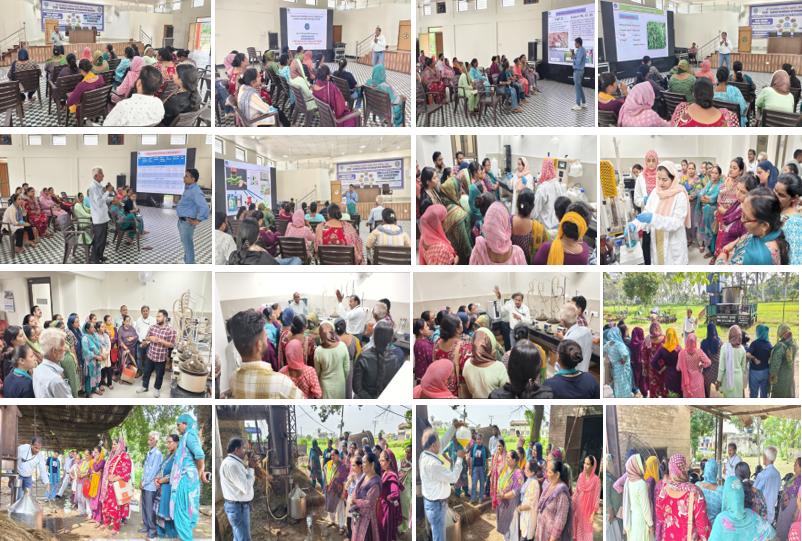
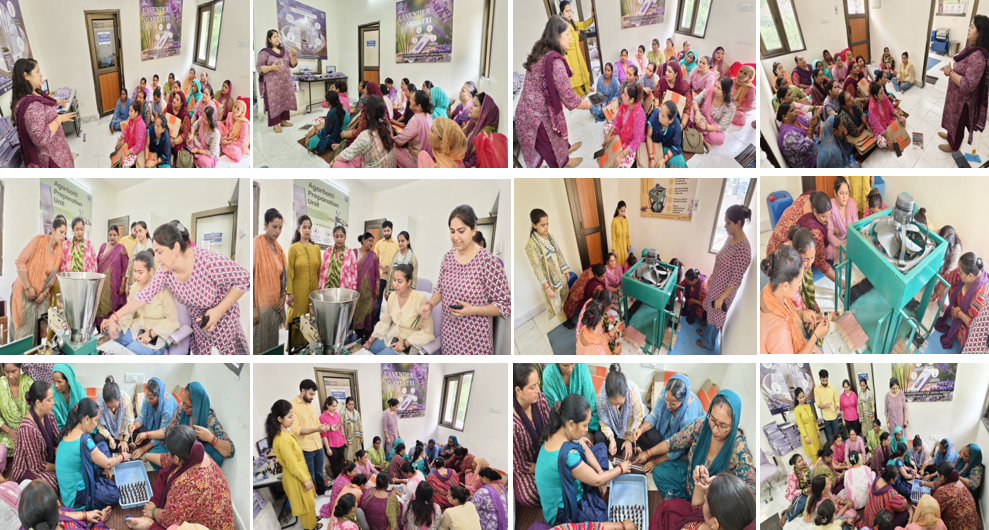
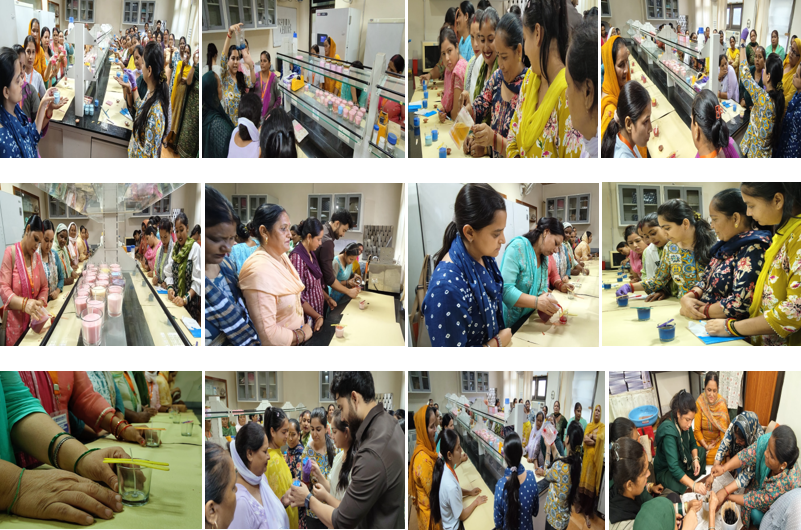
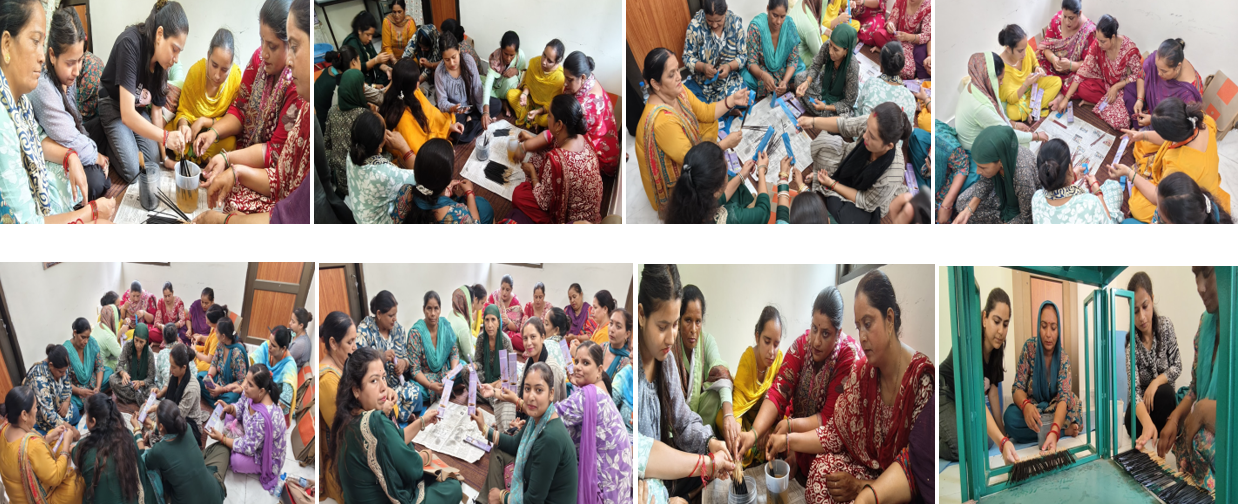
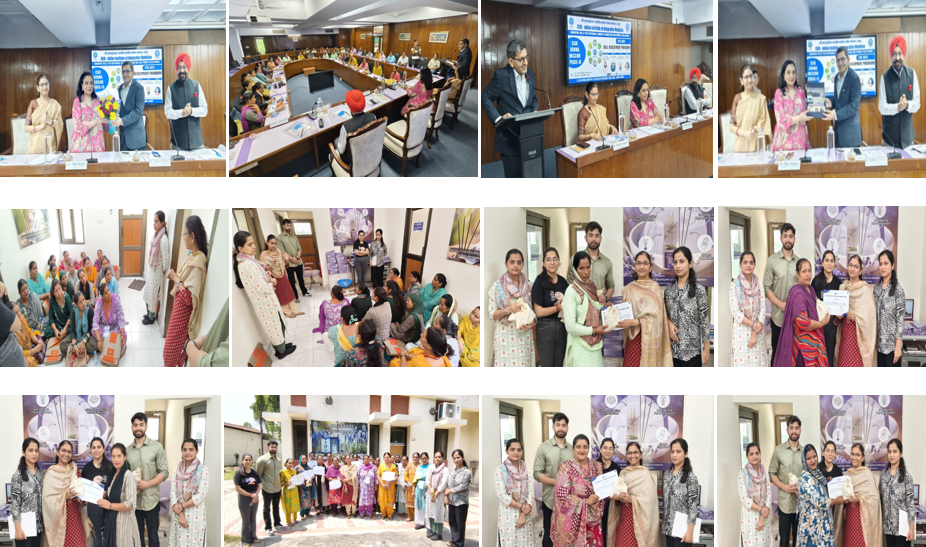
English Hindi Urdu-
Twitter
-
Facebook